Phonics & Early Reading

At William Morris, we use the Read Write Inc (RWI) programme to get children off to a flying start with their literacy. RWI is a method of learning focused on letter sounds and phonics, and we use it to aid children in their reading and writing.
Reading opens the door to learning. A child who reads a lot will become a good reader. A good reader will be able to read more challenging material. A child who reads challenging material is a child who will learn. The more a child learns, the more he or she will want to find out.
Using RWI, the children learn to read effortlessly so that they can put all their energy into comprehending what they read. It also allows them to spell effortlessly so that they can put all their energy into composing what they write.
When using RWI to read the children will:
- learn 44 sounds and the corresponding letter/letter groups using simple picture prompts
- learn to read words using Fred Talk
- read lively stories featuring words they have learned to sound out
- show that they comprehend the stories by answering questions.
When using RWI to write the children will:
- learn to write the letters/letter groups which represent 44 sounds.
- learn to write words by saying the sounds in Fred Talk
- write simple sentences

